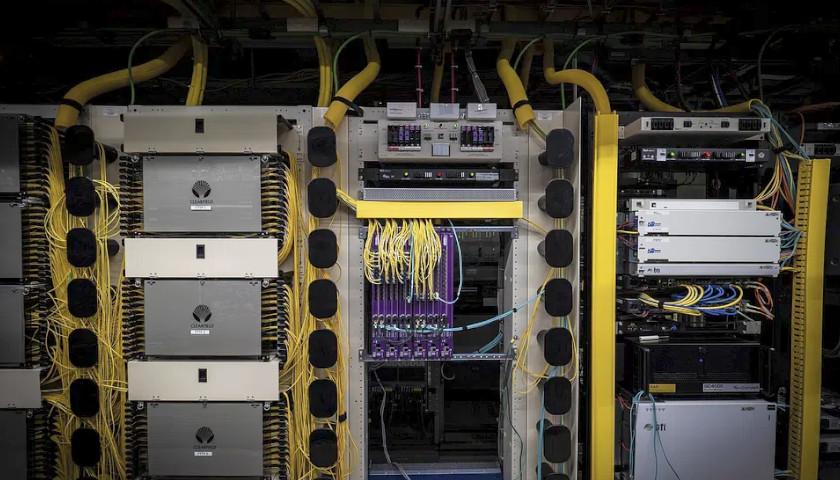by Garrett Holt
If the last two years have taught us anything, it’s that high-speed internet is as integral to the modern world today as electricity was 100 years ago. Still, around six percent of the country, heavily concentrated in very rural areas, lack access to the infrastructure that would bring them online. Lawmakers on both sides of the aisle have recognized these individuals are in danger of getting left behind and made serious efforts to make sure the remaining communities get connected quickly. Republican lawmakers have also fought hard to include language in internet infrastructure initiatives that prevents some of the typical government-waste we see with big-spending projects.
Unfortunately, in Cleveland, Tennessee, some local officials have been pursuing an ineffective, inefficient, budget-busting policy as a means to close the digital divide that will make our government bigger, not smaller- government owned broadband networks.
Government-owned networks (GONs) are exactly what they sound like. The government uses taxpayer dollars to build and manage high-speed internet networks and provides the service to users. Some communities around the country have pitched them to unsuspecting residents as some sort of “solution.” However, history has shown us that they often serve as an example of government waste and overreach into an industry that is already well-covered by multiple private sector competitive providers.
Building high-speed internet networks is a complicated endeavor. Private sector providers invest $70 billion annually to maintain and upgrade their networks. On the other hand, GONs tend to be unsustainable and fail to generate enough revenue to pay for themselves, let alone the kind of upgrades necessary to stay competitive. As these networks fall behind, fewer households subscribe, leaving governments with even less money to upgrade and maintain them.
What happens next is predictable.
They fail to generate the revenue needed to sustain themselves leaving taxpayers on the hook. In many communities, governments have had to raise taxes, issue bonds, and watch their credit ratings dive when their GON has failed. Some are forced to divert money away from essential services like the police department or fixing our roads and bridges.
Examples of failed GONs are all around the country and even our state. The city of Provo, Utah was forced to sell their GON in 2013 for one dollar, leaving the city’s taxpayers stuck with the $39 million bond originally issued to build the failed network. Just over the border in Bristol, Virginia, their GON was a total failure, and it was sold at an $80 million loss for the community. Here in Tennessee, Newport has already been plagued by investigations into financial irresponsibility after investing in a GON in 2018. More recently, Johnson City’s internet network has drastically underperformed expectations and is well into the red.
While GON advocates point to Chattanooga as the so-called “gold standard” of GONs, the fact they often omit is that it was built decades ago when there was little competition between providers and broadband infrastructure wasn’t nearly as ubiquitous. That network also received over $100 Million in direct federal grant funding to help get it started.
That is why it is so concerning that local officials in Cleveland are proposing building a GON of their own here that would be administrated by Cleveland Utilities. This is a bad deal for taxpayers and one that frankly makes no sense
With nearly 99.75% in Cleveland served by three or more providers, it’s hard to see how spending tens of millions to build a fourth or fifth network — and take years to do it – would do anything for the people who don’t have internet now. In order to get every household and business connected in the quickest and most effective way possible, local officials should instead partner with existing providers who have the means and technical skills to build and maintain these networks. For where cost is a concern, the federal government has a new voucher program for low-income households that makes internet service free of charge.
Growing our government and putting it in charge of something as technical and as integral as our internet is wrong and will cost taxpayers dearly. It will cost local residents who urgently need a digital connection even more.
– – –
Garrett Holt is an East Tennessee activist and commentator on issues of government waste and better fiscal management.
Photo “Broadband Installation” by btphotosbduk. CC BY 2.0.





“Unfortunately, in Cleveland, Tennessee, some local officials have been pursuing an ineffective, inefficient, budget-busting policy as a means to close the digital divide that will make our government bigger, not smaller- government owned broadband networks.”
What sources can you provide to prove that what is being proposed in Cleveland is “ineffective, inefficient and budget-busting?”
You completely avoided the success story that is Twin Lakes Fiber Optics in Cookeville. You also completely avoid the track record of below average customer service with AT&T, Comcast and Spectrum. You completely avoid the overselling of internet capacity frequently done by all those above.
You also avoid the price gouging these companies perform– charging exorbitant rates to force people into “bundles” for services they don’t need/want, raising prices while giving new customers better pricing, and in the case of AT&T, trying to push crappy DSL/ADSL.
You also don’t talk about the billions the private sector got from the government to “improve” their networks that didn’t actually get used to improve them.
I’ve been working in IT and telecommunications in TN for 12 years. Trust me, if the private sector was doing such a great job no one would want the GON’s to start up.